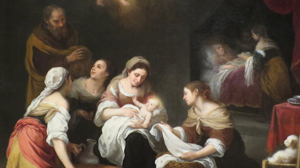Scripture:
Genesis 15:1-12, 17-18
Matthew 7:15-20
Reflection:
In our gospel reading today, Jesus reminds us to beware of false prophets, who come to us in sheep’s clothing, but underneath are ravenous wolves! It seems everywhere we turn today we are confronted by these false prophets! Whether it be in family, friendships, community, business, government or church, these false prophets focus on their self-interests and ignore what is best for the greater good.
Pope Francis constantly challenges us to put the needs of others before our own. These false prophets seem to have infiltrated our family and friend relationships when mistrust and bickering exist. They are present in our local and world communities when the needs of the poor and minorities are ignored and greed and power become the only agenda items at city council meetings or corporate venues. Our government seems obsessed with tearing down rather than building up past structures that focused on the God-given rights of justice and freedom for all!
These ravenous wolves that Jesus speaks of are also part and parcel of our church! I love the Catholic Church, the church of my baptism and the place I have ministered in for 35 years! The Church is made up of very fallible human beings, myself included! False prophets challenged Jesus over 2000 years ago just as they do to us this day. They take on the guise of Church leaders who focus on the letter of the law rather than the heart of the law. They abuse their office when they refuse a catholic burial to someone who is LGBT, or when they choose to listen to the big ‘giver’ and only pay lip service to the ordained and lay whose ministry is based on the model of Jesus Christ. Sometimes the People of God, as good and faithful as they are, fall prey to the self-centeredness that manifests itself as entitled false prophets when they cop the attitude, ‘My way or the Highway’ of their leaders.
As the covenant people God has created us to be, we must remember this gospel message:
‘Remain in me, as I remain in you, says the Lord;
Whoever remains in me will bear much fruit.’
May we take to heart these words of Jesus and act accordingly!
Theresa Secord is a Pastoral Associate at St. Agnes Parish, Louisville, Kentucky.







